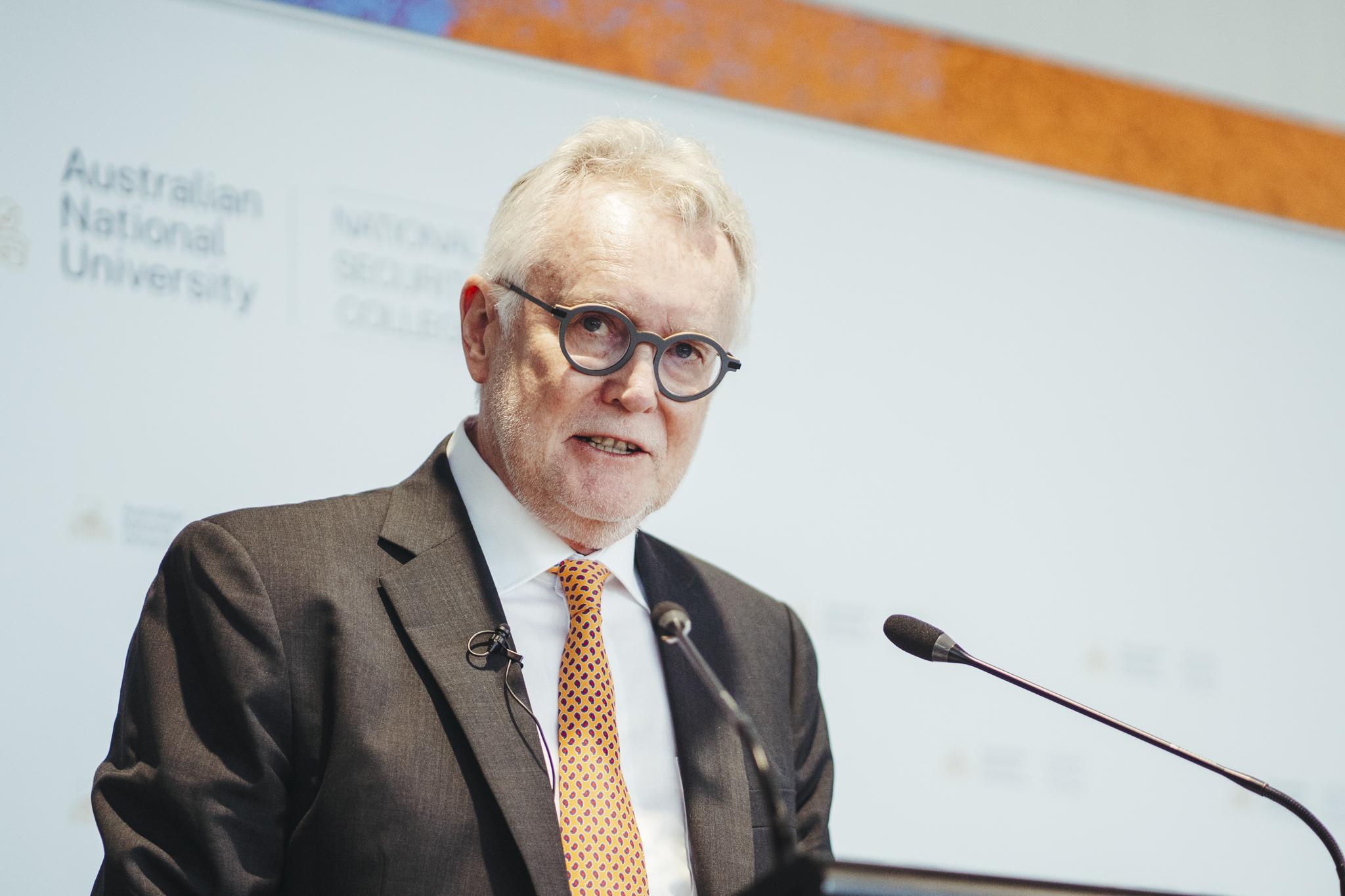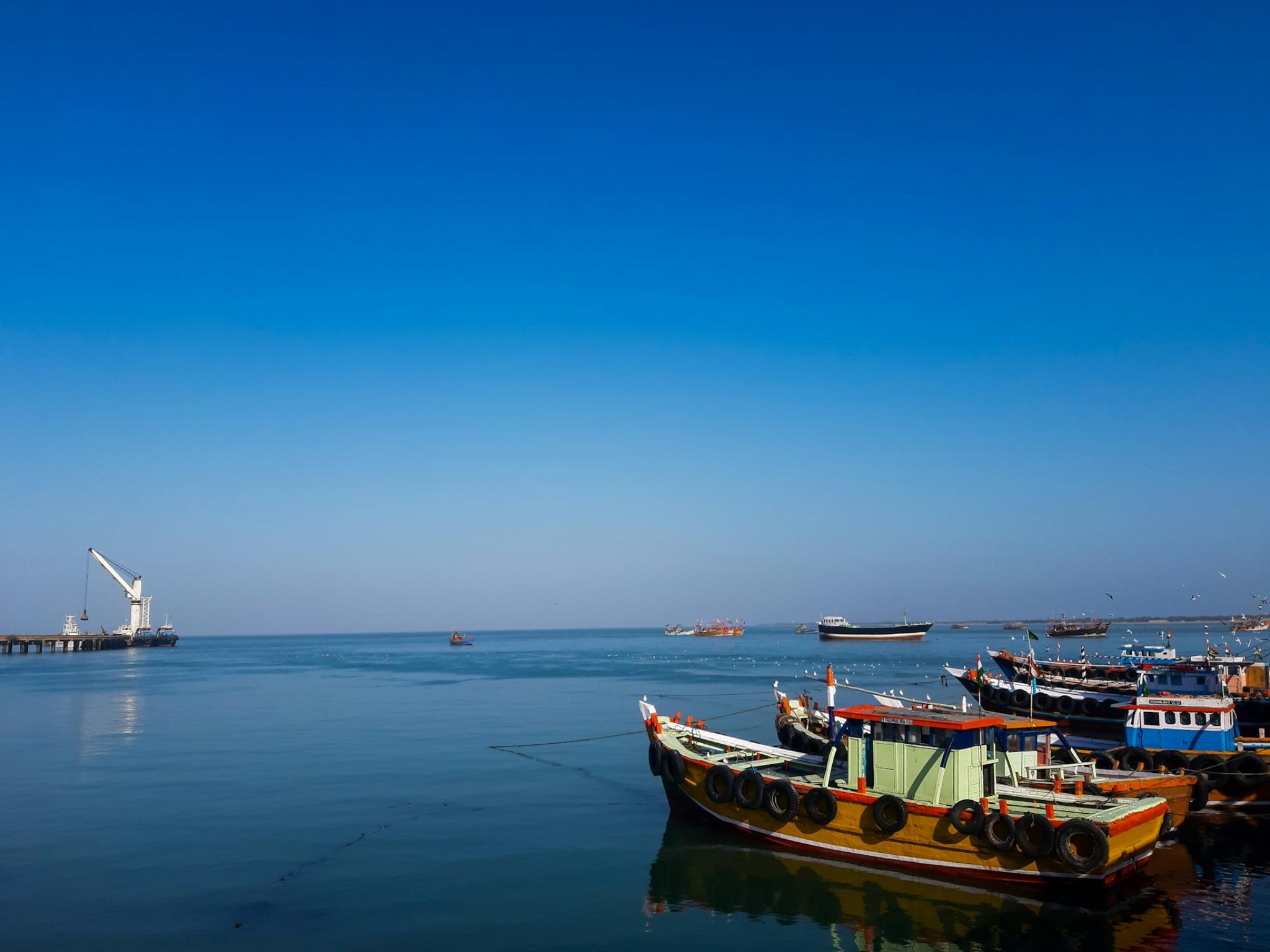New options for trilateral cooperation in the Indo-Pacific: Australia-India-United Kingdom

Key points
- The interests of Australia, India and the United Kingdom in the Indo-Pacific are increasingly intertwined. This creates opportunities for the three countries to work together on selected issues to help strengthen regional security and prosperity.
- The three countries’ interests most clearly converge in the Indian Ocean.
- Trilateral collaboration should focus on initiatives that can yield the greatest impact, including in the areas of maritime security, infrastructure and connectivity, and technology sharing.
Policy recommendations
- Security in the maritime domain should be a key focus for cooperation, including joint naval exercises and building greater maritime domain awareness. Cooperation in the Indian Ocean, and the Bay of Bengal in particular, should be prioritised.
- Australia, India and the UK should work together to strengthen the capabilities of countries in the Indian Ocean region for protection of the marine environment.
- The three countries should pursue joint projects in infrastructure and connectivity, including through regional initiatives such as the Bay of Bengal Initiative for Multi-Sectoral Technical and Economic Cooperation (BIMSTEC), and in submarine cables.
- Australia, India and the UK should pursue joint initiatives on the adoption of Central Bank Digital Currencies.
It’s now time to consider how the United Kingdom can be better networked with key Indo-Pacific resident players such as India and Australia to help strengthen regional security and prosperity, and better leverage the UK’s capabilities as a stabilising actor in the region.
The UK is a leading international player with a highly capable navy. It hosts a global financial centre and is a source of key technologies in areas such as defence, energy and finance. The UK is working to enhance its regional activities and relationships as part of its ‘Indo Pacific Tilt’, following its 2021 Integrated Review.1 The UK and India have also adopted Roadmap 2030 for enhanced relations in trade, climate change and security relations.2 There are many Quad initiatives in which the UK could play a valuable, complimentary role. The AUKUS arrangements, announced in September 2021, also create new opportunities for technology sharing.
Opportunities for trilateral cooperation exist in three key areas: maritime cooperation in the Indian Ocean; regional infrastructure and connectivity, including in submarine cables; and cooperation in Central Bank Digital Currencies.
Trilateral collaboration would have the most practical impact if it is focused on the Indian Ocean, and especially the Bay of Bengal, where all three countries have significant interests. India is already a regional leader there, and it has been flagged by both Australia and the UK for greater focus in their Indo-Pacific efforts. Bay of Bengal states are increasingly experiencing adverse impacts from major power competition. Trilateral cooperation in selected areas could have a meaningful impact for countries such as Bangladesh, Sri Lanka and Maldives (and in some cases, also Nepal and Bhutan), with benefits for regional stability.
Maritime cooperation in the Indian Ocean
The maritime domain will be a major focus, including opportunities for cooperation in naval exercises, maritime domain awareness and capacity building in oceans governance.
Naval cooperation
There is much scope for greater interactions among the three navies in the Indian Ocean. The UK’s semi-permanent deployment of two Royal Navy (RN) vessels (HMS Tamar and HMS Spey) to the Indo-Pacific creates opportunities for ad hoc engagements without the administrative issues involved in the establishment of a new trilateral exercise format. The RN vessels could, for example, participate in Australia’s Indo-Pacific Endeavour deployments to the Northeast Indian Ocean region or in the bilateral AUSINDEX naval exercises. Such exercises, over time, would improve the capacity of these three navies to undertake joint operations in more complex settings.
Information sharing
Maritime domain awareness3 is a building block for improving security against so-called ‘Blue Crime’4 and other maritime threats. Information sharing arrangements are already in place for ‘white’ shipping, including through India’s Information Fusion Centre – IOR. The focus should now be on sharing information on ‘dark’ shipping (vessels that purposely hide their identities), including as part of the Quad’s new Indo Pacific Maritime Domain Awareness program.5
Maritime surveillance
There is scope for cooperation in maritime surveillance, particularly through coordinated patrols using the P8 maritime patrol aircraft operated by the three countries. This could help Indian Ocean partners such as Bangladesh, Sri Lanka and Maldives better police their EEZs against transnational maritime threats such as illegal fishing and drug and people smuggling, as a highly visible tool for engagement with those countries. This could involve using the P8 platforms operating out of airfields in India or partner countries such as Sri Lanka (Hambantota) or Maldives (Gan), potentially with surveillance support from Indian, Australian and UK naval vessels.
Capacity building in oceans governance
Many Indian Ocean countries are seeking assistance from international partners to improve national MDA systems to better govern their large maritime jurisdictions.
Australia, India and the UK could coordinate their efforts in assisting selected regional partners to build national surveillance and information fusion capabilities.
This could bring together agencies such as India’s Information Management and Analysis Centre (IMAC), the UK’s National Maritime Information Centre (NMIC) and the Australian Border Operations Centre (ABOC), with an initial focus on assisting selected Bay of Bengal states. The three countries could also work together in assisting selected regional partners in other aspects of oceans governance, including joint training in Search and Rescue and disaster response.
Regional capability building in undersea mining
Seabed mining, including for critical minerals, is likely to become a major industry in the Indo-Pacific.6 Chinese and Indian companies have been active in seabed mineral exploration in the Indian Ocean. But there are significant concerns about environmental impacts of seabed mining, if not properly regulated. Mining in international waters is regulated by the UN, but mining within national EEZs/continental shelf areas, where critical and rare minerals such as polymetallic nodules and cobalt-rich crusts are believed to be present, is under the jurisdiction of littoral states. But there are major gaps in national regulatory structures.
The three countries could sponsor regulatory capacity building through the Indian Ocean Rim Association (IORA). Although this is a priority, IORA doesn’t currently have a robust agenda of work in this area. Australia, India and the UK can offer expertise in international law and mining regulation and practice for the benefit of the region.
Regional action on marine plastics
The three countries can leverage their Commonwealth links to mobilise and/or provide capacity building to other Commonwealth members to address the challenge of marine plastics, which has become a major global environmental challenge. The Commonwealth Action Group on Marine Plastic Pollution (which is co-chaired by the UK) would be a good vehicle to bring together Commonwealth countries to support initiatives on marine plastics, including work being undertaken under the Indo-Pacific Oceans Initiative. This could, for example, include sponsoring regional declarations on marine plastics in support of negotiations for a global treaty on this issue.
Australia, India and the UK share historical ties as well as many contemporary interests in the Indo-Pacific. It increasingly makes sense for the three countries to work together.
Regional cooperation in infrastructure and connectivity
Australia, India and the UK have many opportunities to work together to help strengthen capabilities of Indian Ocean states to develop and improve infrastructure, including obtaining finance on fair and transparent terms.
The three countries are already active members of the Coalition for Disaster Resilient Infrastructure, which is an international partnership to promote resilience of infrastructure to climate and disaster risks. This includes the Infrastructure for Resilient Island States (IRIS) initiative which provides technical assistance to small island states for the development of climate and disaster resilient infrastructure.7 IRIS, which was jointly launched by Prime Ministers Johnson, Modi and Morrison in November 2021, will provide a valuable platform for the three countries to cooperate with Indian Ocean and Pacific small island states.8
Further opportunities for trilateral cooperation in infrastructure/connectivity could include coordinated assistance with Bay of Bengal states and in the area of submarine cables.
Better coordinate assistance to Bay of Bengal area states
The three countries are already active aid providers to Bangladesh, Sri Lanka, Bhutan and Nepal and could coordinate their efforts in conjunction with international funding institutions such as the Asian Development Bank. There should be a focus on projects relating to energy and connectivity, consistent with regional plans such as the BIMSTEC Master Plan for Transport Connectivity,9 and where appropriate, projects could be co-badged with BIMSTEC. This could include local capacity building in fields such as project management and design, impact assessments, transparent processes and regulatory oversight.
Submarine cables
Submarine cables represent a critical area of connectivity where trilateral cooperation can be more than the sum of its parts.
There is a growing realisation of the vulnerability of submarine data cables (and potentially, also, electricity cables) to disruption, including through intentional interference. The three countries should work together to enhance their own and regional capabilities through:
- jointly sponsoring a regional vulnerability assessment
- coordinating their efforts to plug gaps in domestic and international law protections for submarine cables
- sharing information on risks/suspect behaviour and
- conducting joint table top exercises on responding to critical cable outages in the Indian Ocean. UK-based private companies, which are among the world’s leading providers of cable laying and maintenance services, could assist in advising on joint or coordinated responses to regional cable outages.
Cooperation in technology and cyber
The three countries will also have many opportunities for cooperation in the technology and cyber space. This could include initiatives concerning Central Bank Digital Currencies.
Central Bank Digital Currencies
The international financial system, including systems for international payments, is increasingly becoming a key zone of geopolitical contest. China is rapidly developing an international network of wholesale Central Bank Digital Currencies (CBDCs), which will likely be accelerated following international sanctions against Russia.10 Its objective is to reduce the dominant role of the US dollar in international trade and finance, and to minimise reliance on the US-controlled global financial infrastructure. Australia is participating in a parallel joint country trial that could enable cheaper, faster, and safer cross border payments.11
The three countries should bring together their expertise in digital currencies and international settlements and sponsor research concerning the potential geopolitical risks arising from the promotion of new digital currencies by strategic competitors.
Australia, India and the UK share historical ties as well as many contemporary interests in the Indo-Pacific. It increasingly makes sense for the three countries to work together on selected issues to help strengthen regional security in areas where collaboration can be more than the sum of the parts. Aspirations for trilateral cooperation need to be realistic. Collaborative initiatives will need to be focused, with achievable goals, and have demonstrable regional impact.
There is much scope for the UK to complement various Quad initiatives, including in the maritime domain.
The AUKUS arrangement might also provide a useful platform to work with India in areas that extend across quantum technology, artificial intelligence, undersea warfare, hypersonics and counter-hypersonics.12 Although AUKUS was conceived as an arrangement for sharing of critical defence technologies among Australia, the UK and United States, the arrangement may also create many opportunities for collaboration with other partners such as India.
References
- https://www.gov.uk/government/publications/global-britain-in-a-competitive-age-the-integrated-review-of-security-defence-development-and-foreign-policy/ global-britain-in-a-competitive-age-the-integrated-review-of-security-defence-development-and-foreign-policy#strengthening-security-and-defence-at-home-and-oversea
- https://www.gov.uk/government/publications/india-uk-virtual-summit-may-2021-roadmap-2030-for-a-comprehensivestrategic-partnership/2030-roadmap-for-india-uk-future-relations
- The effective understanding of anything associated with the maritime domain that could impact the security, safety, economy, or environment.
- Organised crime in the maritime domain such as illegal fishing, piracy and drug and people smuggling.
- https://www.lowyinstitute.org/the-interpreter/black-ships-quad-and-space
- James Conca, “Seafloor Mining for Critical Minerals – A Brilliant Idea or Another Environmental Catastrophe?” Forbes, 11 February 2022. https://www.forbes.com/sites/jamesconca/2022/02/11/seafloor-mining-for-rare-metals--a-brilliant-idea-or-another-environmental-catastrophe/?sh=492d1d0e7719
- Lisa Singh, “Building island climate resilience” Pursuit, 12 November 2021. https://pursuit.unimelb.edu.au/articles/building-island-climate-resilience
- https://www.cdri.world/press-releases/launch-infrastructure-resilient-island-states-iris-cop26
- https://www.adb.org/sites/default/files/institutional-document/740916/bimstec-master-plan-transport-connectivity. pdf
- https://www.bis.org/about/bisih/topics/cbdc/mcbdc_bridge.htm
- https://www.bis.org/about/bisih/topics/cbdc/dunbar.htm
- David Brewster, “AUKUS can be a good platform for cooperation with India” Lowy Interpreter, 4 April 2022. https://www. lowyinstitute.org/the-interpreter/aukus-can-be-good-platform-cooperation-india
About the series
NSC's Policy Options Papers offer concise evidence-based recommendations for policymakers on essential national security issues. Papers in this series are peer-reviewed by a combination of expert practitioners and scholars.

